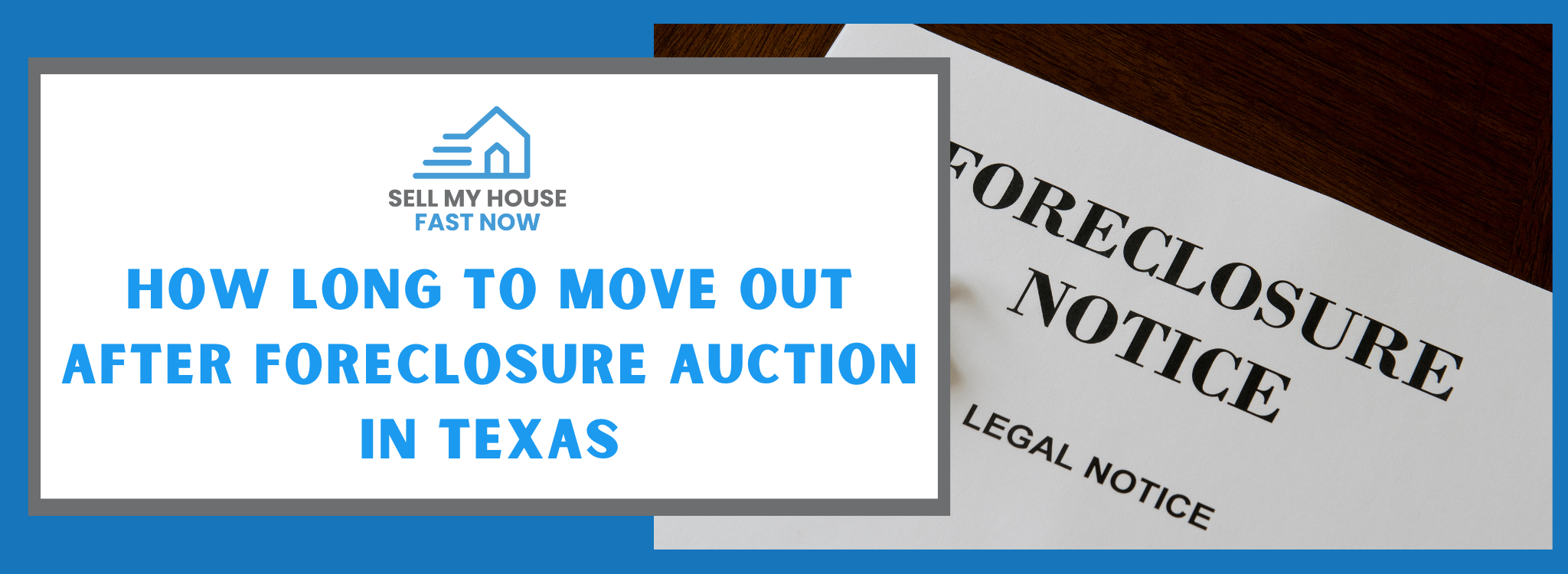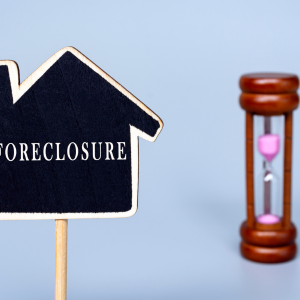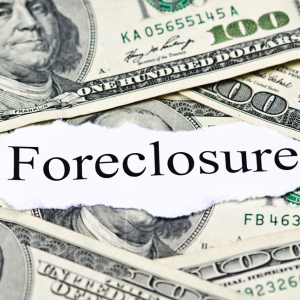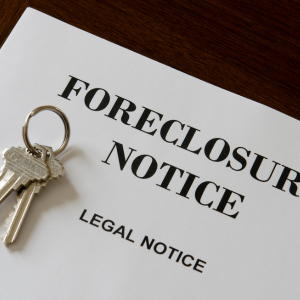
What Happens Immediately After a Foreclosure Auction?

When a foreclosure auction happens, the property is sold to the highest bidder. This can be hard for homeowners. Once the auction is over, the winner becomes the owner of the property. This starts important steps that must be followed next.
Timeline of Post-Auction Procedures
After the foreclosure auction, there are steps to follow for both the new owner and the previous homeowner. First, the lender confirms the sale and starts switching the property to the new owner. In Texas, this can take a few days or weeks as the deed is transferred. Knowing the Texas foreclosure proceedings is important to make sure everything goes right.
Responsibilities of the New Property Owner
The new property owner, whether a person or a bank, has to take care of the property. These duties include fixing any problems and keeping the property in good shape. If tenants live on the property in Texas, you must follow state laws about eviction and tenant rights while deciding what to do with them.
How Are Tenants Affected by Foreclosure in Texas?

Foreclosure can be tough for tenants, not just the property owners. If you’re renting a foreclosed home, knowing your rights is important. Foreclosure doesn’t automatically end your lease, but the new owner might decide not to keep it.
Impacts on Tenant Rights and Leases
In Texas, tenants have rights even if the property is foreclosed. Leases may still be valid until the new owner decides otherwise. Tenants should receive notices about foreclosure and possible eviction. Knowing these rights helps tenants get ready for changes.
Legal Protections for Renters
Texan renters have legal protections if their home is foreclosed. For example, they must get proper eviction notices according to Texas law. These laws help prevent illegal evictions and help tenants manage the process while protecting their rights.
For more help on foreclosure processes or other solutions, contact experts like Sell My House Fast Now. Whether facing foreclosure or looking for investment opportunities, understanding these steps is key to making smart decisions.
What Options Are Available for Staying Longer in Your Foreclosed Home?

Facing foreclosure can be hard, but there are ways to stay in your home longer. Knowing these options might help you feel a little better.
First, try talking to your lender. They might offer choices that let you stay in your home for a while. Talking openly with them is important. Sometimes, you can make a leaseback agreement. This means you become a tenant and rent your home from the new landlord. It’s not forever, but it gives you more time to plan your next move.
Look at options in your state too. If you live in Texas, it helps to know local laws. Some places have special rules after a home is foreclosed or allow more time before you have to leave. Learning about these can help slow down the eviction process.
You should also think about getting legal help to learn your rights and duties. There are guides for people in Texas who are dealing with foreclosure.
Can You Reclaim Your Foreclosed Property?

Getting back a foreclosed home is tough but sometimes possible. You need to learn about your redemption rights.
Redemption rights give you a chance to buy back your property by paying what you owe on your mortgage plus extra costs within a certain time. This follows a legal process and is different in each state. In Texas, knowing the foreclosure redemption period is important. Texas doesn’t give as many chances for redemption as some states, so acting fast is key.
If you want to get back your foreclosed home, talk to your lender and maybe a lawyer to help you through the steps. There can be limitations, so know the rules before you start.
Even if the normal redemption time is over, ask about other ways. Sometimes lenders have programs to help past homeowners. By staying informed and active, you can increase your chances of succeeding.
What Are the Legal Rights of Homeowners Post-Foreclosure?

After foreclosure, homeowners might wonder about their rights. Even after foreclosure proceedings, they have some rights. In Texas, the law says homeowners must get an eviction notice before leaving their homes. This notice tells them important details about the timeline and process.
It’s important to know the foreclosure eviction laws in Texas. These laws help ensure that you’re treated fairly and understand your rights during this difficult time.
Distinguishing Between Different Types of Foreclosure
Foreclosure can happen in different ways. It depends on the type of mortgage and agreement with the bank. The two main types are judicial and non-judicial foreclosures. Judicial foreclosure means going to court, while non-judicial foreclosure can involve a foreclosure auction or sale by the bank.
Sometimes, a deed of trust is used instead of a mortgage, which can speed up the process. Knowing these differences helps homeowners better understand the foreclosure process.
Rights When Receiving an Eviction Notice
Getting an eviction notice can be stressful for homeowners and tenants. In Texas, the eviction timeline has steps that must be followed. Knowing the foreclosure eviction process and procedure can protect your rights as a homeowner or tenant.
Usually, after getting an eviction notice, there’s a time to respond. It’s smart to seek legal help if you’re unsure about your rights or what to do next. This helps make sure you’re doing everything right.

What Assistance is Available for Those Facing Foreclosure?
Help is available for people facing foreclosure. Financial aid comes from government programs and nonprofit organizations that provide foreclosure assistance. These groups help homeowners understand foreclosure help and timelines, especially in Texas.
Talking to a lawyer who knows about foreclosure is also a good idea. They can give advice that fits your situation and might help save your home.
Government Programs and Financial Aid
Many government programs help homeowners during foreclosure proceedings. These programs often offer financial aid or other support to help people stay in their homes longer or manage debt better.
In Texas, there are special foreclosure assistance programs to meet local needs, offering resources and guidance step by step.
Nonprofit Organizations Offering Support
Nonprofit organizations are important for providing foreclosure assistance and financial support. They offer housing help and connect people with resources they might not find elsewhere. In Texas, several nonprofits focus on helping those facing foreclosure, offering free guidance and support.
These resources are very helpful for homeowners looking to save their homes or move smoothly to new living arrangements.
How Does the Texas Eviction Timeline Influence Moving Out?

The Texas eviction timeline is key for anyone facing eviction or foreclosure. It tells you how much time you have to leave your home. In Texas, if a property is foreclosed, the new owner must give you an eviction notice if they want you to move out. This notice explains when you need to vacate after foreclosure. Usually, after getting the eviction notice, renters or previous homeowners have about five days to move out.
After a foreclosure auction, you might wonder what happens next. In Texas, you will get an eviction notice after foreclosure, which starts the eviction process. Knowing these timelines helps you plan your next steps, like finding a new place to live or contesting the eviction in court.
Differences in Bank-Owned vs. Third-Party Foreclosures
When dealing with foreclosures, it’s important to know the difference between bank-owned properties and those bought by third parties. In a bank-owned foreclosure, also called real estate-owned (REO) property, the bank owns the home because it didn’t sell during the auction. If you face eviction from a bank-owned property in Texas, banks often have set rules for handling these situations.
However, when a third-party buyer gets a property at auction, the eviction process can be different. These buyers may have different rules compared to banks. Post-foreclosure eviction rules can vary, so understanding who you’re dealing with is crucial.
By knowing these differences, you can better prepare for the eviction process and find a new home. Whether dealing with a bank repo property eviction in Texas or navigating post-foreclosure scenarios, this knowledge is important.
How Can a Foreclosure Lawyer Assist You?

If you’re facing foreclosure, having a lawyer can really help. They explain the steps of the foreclosure eviction process in simple terms. A foreclosure attorney offers legal aid by checking your case and informing you about your rights. They can also represent you in court if needed. In Texas, they guide you through the specific foreclosure legal process and help with timelines to get the best results.
Evaluating Legal Aid for Foreclosure Issues
When dealing with foreclosure, it’s important to look at your legal aid options. A good attorney knows Texas foreclosure laws and can help you with the rules about foreclosure evictions there. They assist with paperwork, support you during negotiations, and make sure your rights are protected throughout the process.
When to Contact a Lawyer for Post-Foreclosure Assistance
After a foreclosure, knowing when to reach out to a lawyer is key. You may need help with an eviction notice after foreclosure, especially in Texas, where procedures can vary. An attorney helps clarify your rights in post-auction eviction cases in Texas, guiding you on what steps to take next to protect yourself and your family.

Are There Long-Term Effects of Foreclosure on Homeowners?
Foreclosure can have lasting effects on homeowners. A big issue is the impact on your credit score. Understanding the foreclosure timeline and its effects can help you plan to recover financially. Knowing how foreclosure might affect your future borrowing and exploring ways to rebuild your finances is crucial for Texans.
Impact on Credit Score and Future Buying Power
Foreclosure can lower your credit score, which affects your future buying ability. As your credit score falls, getting new loans or good interest rates can become difficult. Financial stability takes time to rebuild after a foreclosure, but knowing recovery strategies can help you plan effectively for your next steps.
Strategies for Financial Recovery and Stability
For financial recovery and stability after a foreclosure, consider getting help with timelines in Texas. Financial planning is essential to regaining stability. Start by making a realistic budget, focus on rebuilding your credit, and consult experts for personal advice. Steps like reviewing your finances and using smart credit-building techniques can lead you toward long-term financial health.
FAQs:
What happens after a foreclosure auction in Texas?
After a foreclosure auction in Texas, the person who wins the auction becomes the new owner of the home. You don’t have to move out right away on the day of the sale. Usually, they must go through a formal eviction process if you haven’t left.
How long do I have to vacate my house after a foreclosure sale in Texas?
You usually have between 3 to 30 days to move out after the foreclosure sale, depending on agreements and legal steps. Sometimes, the eviction process can make this time longer.
What is the eviction process after a foreclosure in Texas?
The new owner will give you a notice to leave. If you don’t leave by the time on the notice, they can ask the court to evict you. A sheriff might come to make sure you leave if needed.
Can I still stay in my house after the foreclosure auction?
Yes, but only for a short time until the eviction process starts. The time can range from a few days to about 160 days, especially for commercial properties.
Do squatters have any rights after a Texas home foreclosure?
Squatters have very limited rights and can be evicted by law. The property owner must follow local laws to do this correctly.
How does the right of redemption work in Texas foreclosures?
In Texas, most people can’t get their home back after foreclosure for regular homes. But for some non-homestead or commercial properties, it might be different.
Are there deficiency judgments after a foreclosure in Texas?
Yes, lenders can try to get a deficiency judgment if the sale of the home doesn’t cover what you owe. It’s important to talk to a legal expert about what you might owe.
Does moving out after a foreclosure affect my credit in Texas?
Moving out itself doesn’t change your credit score, but the foreclosure will hurt your credit. Paying off debts can help reduce the damage over time.
Key Insights
- In Texas, you usually have 3 to 30 days to move out after a foreclosure auction. You don’t have to leave on the sale date.
- Texas property auction rules say that the time to move out can be less than 60 days for some people.
- If it’s a non-homestead or commercial property, you might have up to six months.
- In Houston and San Antonio, sheriff evictions for foreclosed homes follow specific steps.
- The eviction process in Texas often takes about 160 days from when you first get a default notice to the auction.
- After a foreclosure, eviction steps depend on things like a two-year right of redemption.
- Eviction rules say you have a set time to leave after the auction. Law enforcement might get involved if you don’t leave on your own.
- Knowing what happens after a foreclosure auction in Texas is important, as it might involve eviction if you don’t move out.
- It’s good to learn how eviction happens in Texas foreclosures, including your rights and possible outcomes.
- Selling homes quickly or dealing with foreclosure needs expertise; getting help can make moving forward easier.
These details apply to all of Texas, including cities like Houston, Irving, Dallas, Arlington, and Fort Worth, as well as their surrounding areas. For additional assistance or specific inquiries, call us at (800) 467-0003. Visit our website, Sell My House Fast Now, for more information and a full description of our services.
More Resources For Sellers In Texas


